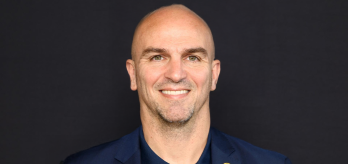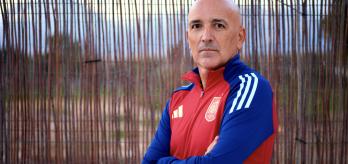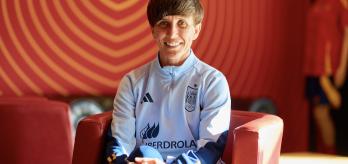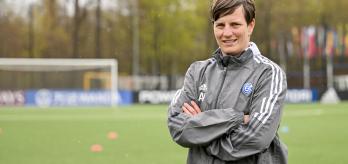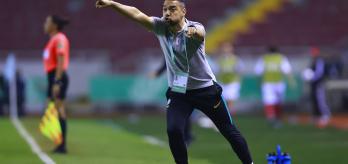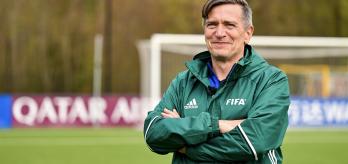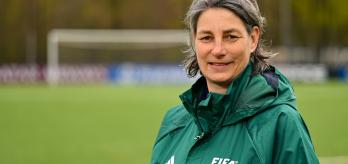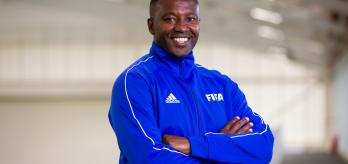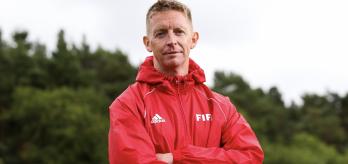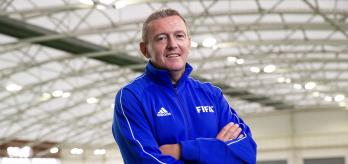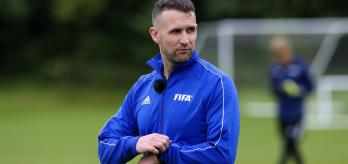Part 1 - Coach development and Ben's road into it
00:06
Ben's career path
Ben currently holds the role of Head of Coaching at Fulham FC. As Head of Coaching, his overarching responsibility is to ensure that coach development aligns with the players' individual needs. Before his role at Fulham, Ben worked for 12 years at the English FA as a coach developer, 2 years at Chelsea as a coach and player developer and 10 years at Colchester United, where he also undertook coach and player development positions.
01:10
Role of a coach developer
The principal role of a coach developer is to support the players' development and ensure that coach development aligns with player development as much as possible. To do this, coach developers need to understand the profile of the players. With this understanding of each player, the coach will know how to best attend to their individual needs.
02:11
The ideal learning environment for a coach developer
The social and cultural aspects of the broader community that the learning environment is situated in are crucial. Instead of placing default models onto a learning environment, developers should spend time understanding the community's nuances and identify what makes football from that area unique.
03:40
The potential changes in the coach developer role within the next 10 years
Online coach development will most likely continue to form a large portion of the programme. Ben cautions that this should be tempered with an approach that caters to each individual coach's needs. Further discussion about striking the right balance between gathering in a central location and participating online is another of Ben’s anticipated changes.
Part 2 - Tips and best practice for coaches
00:08
Tips for coaches
To make sure that a development programme will attend to a coach's needs, coaches should first reflect on what they understand and how they currently practice. The programme will then be better tailored to respond to the coach's individual needs and, therefore, address the players' individual needs.
01:12
Issues with coaching development
One current issue is the imposition of senior team game models onto youth development. From the perspective of coach development, a healthy environment needs to be created where youth coaches, who aspire to be successful senior managers, still positively support and develop the youth players they currently work with.
02:34
Tips for a coach trying to develop a young player within the game
Ben stresses that coaches need to understand that their work with a young player is part of a much longer journey. Coaches should support the player to achieve the broader goals they may have on this journey, not just the targets of the session, next match or season.
Part 3 - Session design
00:07
Fundamental practice principles
Ben has identified several fundamental practice principles. Ensuring that every practice aligns with these principles helps him guarantee that the players' development is placed at the forefront. He breaks them down into four Ds:
Teams or players attack and defend some form of a goal; this means the game of football in its basic form is constantly being practiced.
The direction is defined in the pitch area where it is most likely to happen. For example, when practicing central play, a coach can narrow the area of the pitch so players see it as a representation of where this aspect of the game will happen on match day.
Players are exposed to practices that force them to make decisions themselves rather than being instructed by the coach.
The decisions can be presented in different ways that cater to the player's individual needs; a winger with a skill-set based on pace and direct play should encounter different decisions than a winger with a skill-set based on dribbling and taking defenders on.
02:07
Designing meaningful practices that are closer to the game
Ben advises to work from the game backwards, using the system your club wants to play to underpin practice designs. Every practice should relate in some way to the club's desired system. Constraints (e.g., one-touch) or incentives (e.g., a certain type of goal counting as double) are some of the ways coaches can expose players to the targeted aspects more often.
04:28
Top five tips for designing a practice
Ben provides us with five tips to help coaches design a practice that ticks all the boxes. Following Ben's tips can assist with attending to the individual needs of each player and at the same time align the session with the overall direction of the football club:
-
Firstly, the coach should identify the practice’s purpose.
-
Discuss with the players to understand what they want to get out of playing football.
-
Overlay the team goals (tactics, philosophy, etc.) of the practice with the players' individual needs.
-
Reflect on these three.
-
Ensure the design is holistic, attending to the players' technical/tactical, physical, phycological and social needs (known in England as the 'Four corner' model).
06:30
Understanding the constraints-led approach and its implementation in football
The constraints-led approach has 3 cornerstones:
-
Who's the player – looking at a wide range of individual traits such as speed, weight, or personality.
-
What's the task – looking at what you want your team to set up like or what your opposition will set up like.
-
What's the environment – looking at the circumstances the game of football and players are contending with: weather, referee and crowd are some examples.














